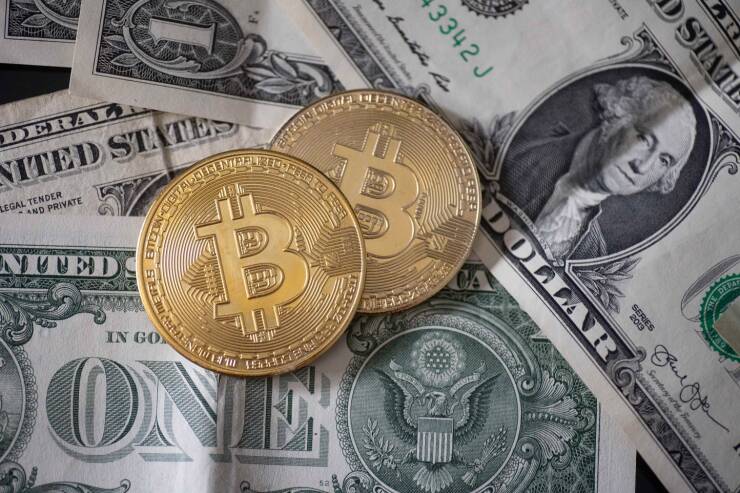
The financial landscape is evolving at an unprecedented rate, driven by the rise of digital technology. One of the most transformative developments in this space is the emergence of digital coins. These digital assets are reshaping the way we perceive and interact with money, leading to a future where traditional banking might become a relic of the past. As digital coins gain traction, it's essential to explore their implications for the future of digital banking.
Understanding Digital Coins
What Are Digital Coins?
Digital coins are a form of currency that exists solely in digital form. Unlike physical money, these coins do not have a tangible representation like coins or banknotes. Instead, they are stored and transacted using digital systems, often leveraging advanced digital graphic techniques to ensure security and integrity.
The Technology Behind Digital Coins
At the heart of digital coins is blockchain technology. Blockchain is a distributed ledger that records all transactions across a network of computers. Each transaction is grouped into a block and added to a chain of previous transactions, creating a secure and immutable record. You can also explore Immediate Apex AI for further information.
The Evolution of Digital Banking
Traditional Banking vs. Digital Banking
Traditional banking has long been the cornerstone of the financial system, providing services like savings accounts, loans, and payment processing. However, this system is often slow, costly, and prone to inefficiencies.
Digital banking, on the other hand, leverages technology to offer faster, more convenient services. From online banking platforms to mobile payment apps, digital banking has made it easier for consumers to manage their finances. However, even digital banking in its current form relies on centralized institutions, which can limit the potential for innovation.
How Digital Coins Are Disrupting Banking
Digital coins are poised to disrupt digital banking by removing the need for traditional banks as intermediaries. With digital coins, transactions can be conducted directly between parties, reducing costs and increasing efficiency. This has the potential to democratize access to financial services, especially for those in underserved regions where traditional banking infrastructure is lacking.
The Benefits of Digital Coins in Banking
Enhanced Security and Privacy
One of the most significant advantages of digital coins is the enhanced security they offer. Transactions are encrypted and recorded on a blockchain, making them nearly impossible to alter or hack. This level of security is far superior to traditional banking systems, where data breaches and fraud are constant concerns.
Lower Transaction Costs
Traditional banking transactions often come with fees, whether it's for wire transfers, currency exchanges, or even just maintaining an account. Digital coins drastically reduce these costs by eliminating intermediaries and allowing for direct transactions between parties. This cost-effectiveness is one of the reasons why digital coins are becoming increasingly popular for cross-border transactions.
Financial Inclusion
Digital coins have the potential to bring financial services to the unbanked and underbanked populations around the world. In many developing regions, access to traditional banking services is limited. Digital coins, which require only an internet connection, can provide these communities with a means to store value, send and receive payments, and participate in the global economy.
Innovation and Flexibility
The rise of digital coins has spurred a wave of innovation in the financial sector. New business models, financial products, and services are emerging, all built around the concept of decentralization and digital assets. This innovation is not only transforming how we bank but also how we think about money and value.
Challenges and Considerations
Regulatory Landscape
Despite the potential benefits, the rise of digital coins also brings challenges, particularly in the regulatory arena. Governments and regulatory bodies are grappling with how to classify and regulate these new forms of digital assets. The lack of a unified regulatory framework can create uncertainty and hinder the adoption of digital coins.
Volatility and Stability
Another challenge facing digital coins is volatility. While some digital coins have shown remarkable growth, they are also subject to significant price fluctuations. This volatility can make them risky for everyday transactions and savings, especially for those who are risk-averse.
Adoption and Integration
For digital coins to become mainstream, there needs to be widespread adoption and integration into existing financial systems. This process requires collaboration between technology providers, financial institutions, and regulators. While progress is being made, there is still a long way to go before digital coins can fully replace traditional banking systems.
The Future of Digital Banking
A New Era of Financial Services
The integration of digital coins into the banking sector signals the dawn of a new era in financial services. In this future, banking could become more decentralized, with individuals having greater control over their financial assets. Traditional banks may evolve into platforms that facilitate digital coin transactions, rather than holding and managing funds.
Global Economic Impact
The global economy stands to benefit from the widespread adoption of digital coins. By reducing transaction costs, increasing transparency, and enabling cross-border transactions, digital coins can drive economic growth and innovation. Moreover, the financial inclusion brought about by digital coins can help lift millions out of poverty by providing them with access to financial services.
Preparing for the Future
As we look to the future, it's clear that digital coins and digital banking are intertwined. Financial institutions must adapt to this new reality by embracing digital coins and integrating them into their offerings. At the same time, consumers should educate themselves about digital coins and the potential benefits and risks they present.
Conclusion
In conclusion, the rise of digital coins is reshaping the future of digital banking. These digital assets offer numerous advantages, including enhanced security, lower transaction costs, and greater financial inclusion. However, challenges such as regulatory uncertainty and volatility remain. As digital coins continue to evolve, they will play a crucial role in transforming how we interact with money, ultimately leading to a more inclusive, efficient, and innovative financial system.